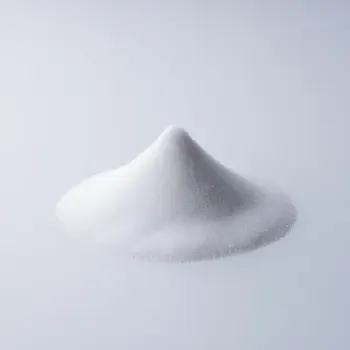Sugar and Stevia are two sweeteners compared for their use in cooking, with Sugar providing sweetness and texture to dishes, while Stevia offers a zero-calorie alternative with intense sweetness suitable for dietary needs.

Sugar, often referred to as table sugar or sucrose, is a natural carbohydrate derived from sugarcane or sugar beet plants. It's used universally in cooking and baking to add sweetness and texture to foods and beverages.

Stevia is a zero-calorie sweetener extracted from the leaves of the Stevia rebaudiana plant. Known for its intense sweetness, it's a popular choice for those monitoring their sugar intake or managing diabetes.
Sugar and Stevia differ significantly in sweetness, with Stevia being much sweeter than sugar. Sugar adds both sweetness and bulk to recipes, while Stevia only contributes sweetness. Additionally, Sugar is caloric and impacts blood sugar levels, whereas Stevia is calorie-free and has a minimal effect on blood sugar.

Your ultimate Recipe Box, Meal Planner, and Cooking Class all in one
In baking, sugar is vital for creating the structure and texture of cakes, cookies, and pastries. It caramelizes upon heating, contributing to the golden-brown crust and rich flavor of baked goods. Stevia can be used in baking as a sugar substitute to reduce caloric content. However, it does not provide the same browning and textural properties, so it's best used in combination with other ingredients that can compensate for those qualities.
Sugar dissolves easily in both hot and cold beverages, offering a classic sweet taste that's familiar and versatile, perfect for everything from coffee to cocktails. Stevia is an excellent sugar alternative for sweetening beverages without adding calories. It's particularly useful in diet drinks and teas, although some people may notice a slight aftertaste.
Sugar helps to balance the acidity and enhance the flavors in sauces and dressings. It's especially common in tomato-based sauces and Asian-style dressings. Stevia can be used sparingly in sauces and dressings to attain the desired sweetness without the added calories. It's important to use it judiciously, as too much can impart a bitter taste.
Sugar is high in calories and affects blood sugar levels, while Stevia is calorie-free and has a negligible impact on blood sugar, making it suitable for diabetic diets.
| Nutrient | Sugar ( per Teaspoon ) | Stevia ( per Teaspoon ) |
|---|---|---|
| Fat | 0g | 0g |
| Sodium | 0mg | 0mg |
| Protein | 0g | 0g |
| Calories | 16 | 0 |
| Carbohydrates | 4.2g | 1g (non-nutritive) |
No, because Stevia is much sweeter than sugar, it requires a much smaller amount to achieve the same level of sweetness. Precise substitution ratios can vary based on the Stevia product used.
Some people may perceive a slight licorice-like aftertaste when consuming Stevia, although this varies among individuals and Stevia products.
Stevia is generally recognized as safe (GRAS) by the FDA. However, if you have a ragweed allergy or are pregnant, it's wise to consult with a doctor before using Stevia extensively.
Stevia has a minimal effect on blood sugar levels, making it a preferred sweetener for people with diabetes or those monitoring their blood sugar.
Yes, Stevia can be used to sweeten coffee. It may require some taste adjustment as it's much sweeter than sugar and has a different flavor profile.